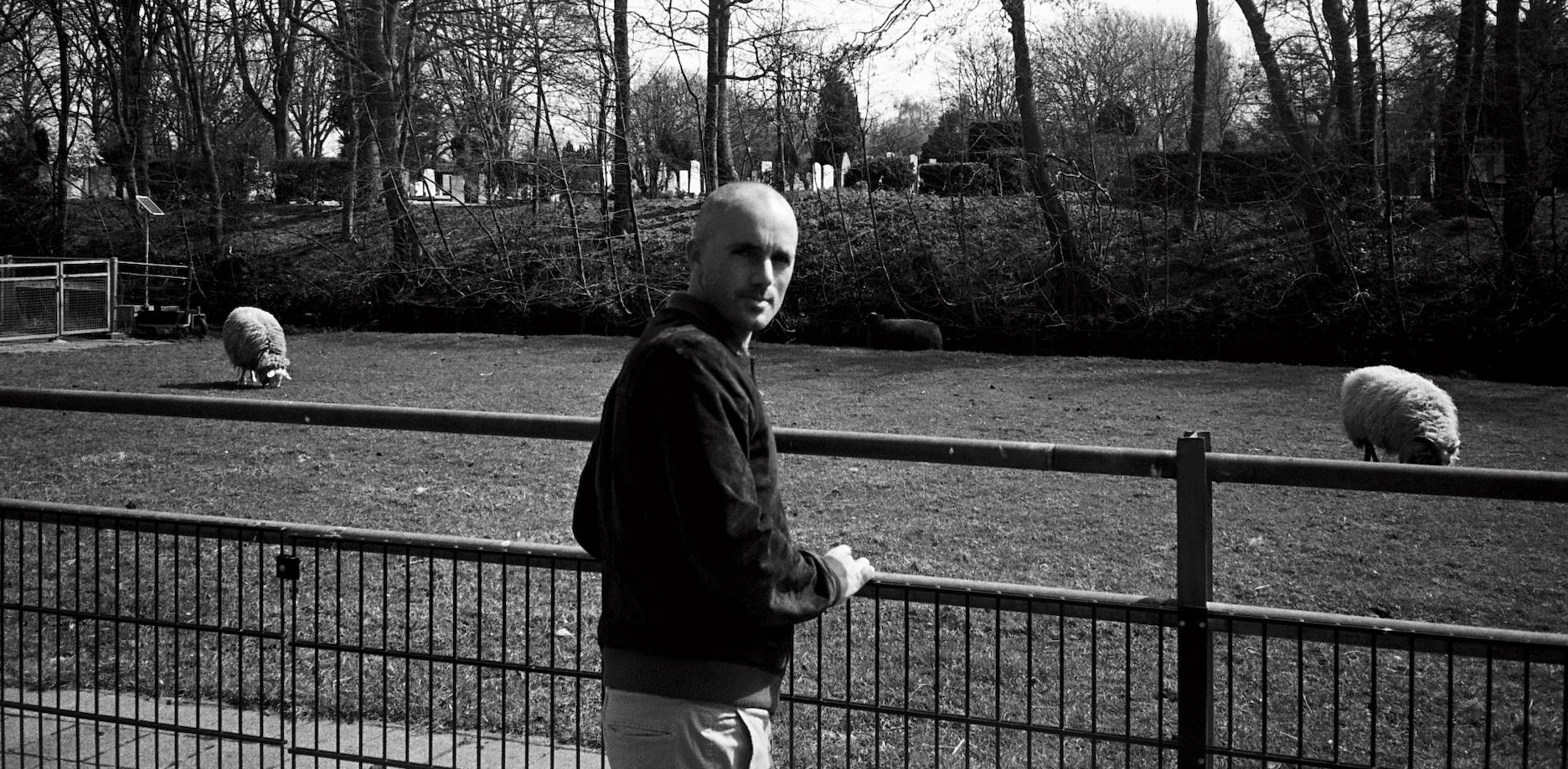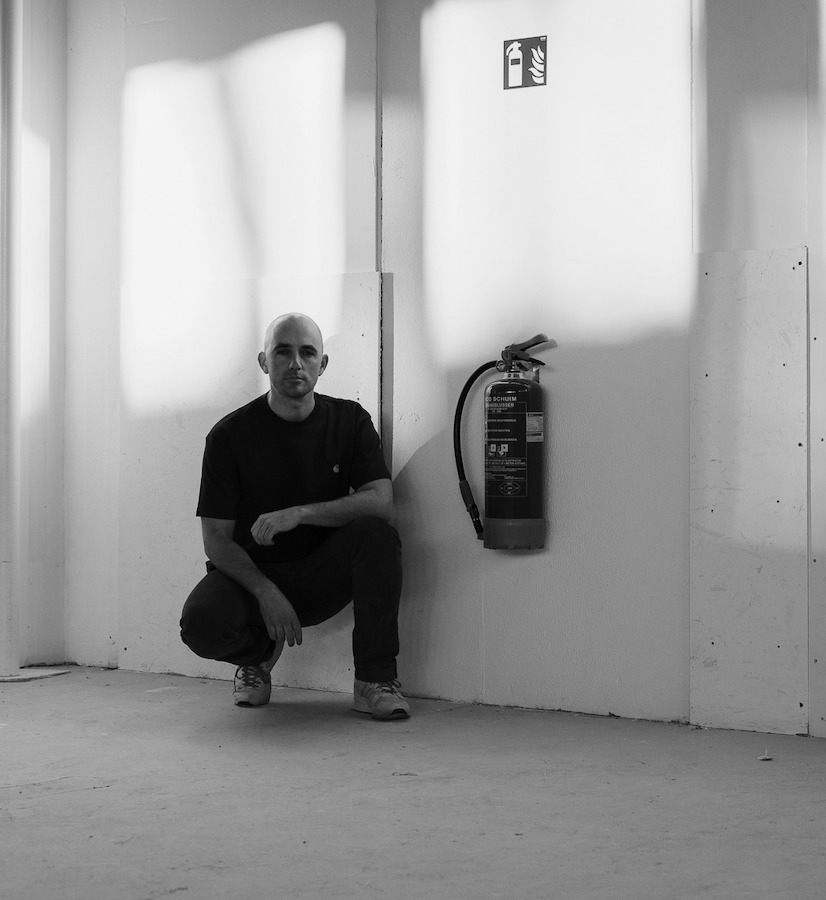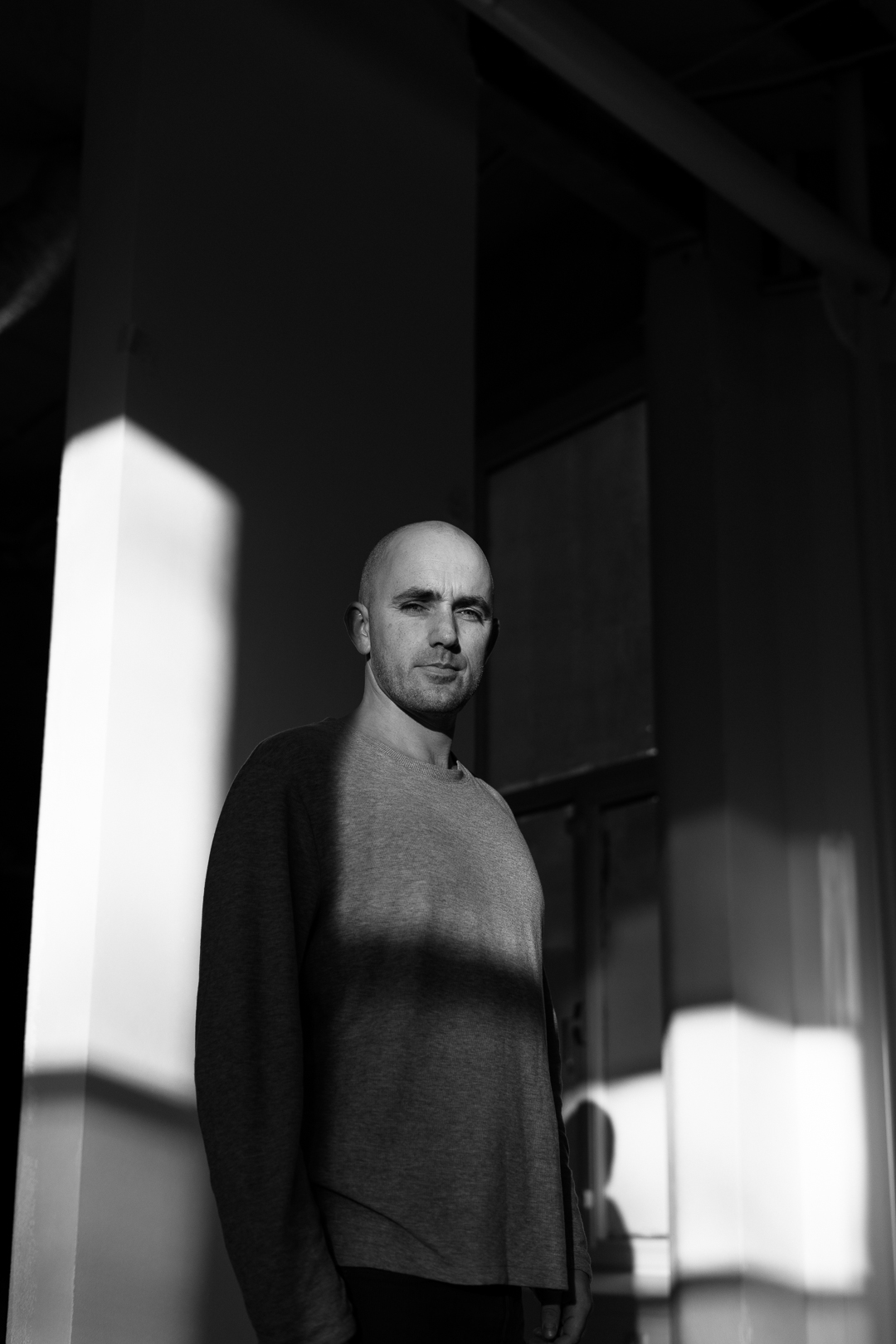Get Familiar: Deniro
Chats with one of Amsterdam's best-kept secrets.

Get Familiar: Deniro
Chats with one of Amsterdam's best-kept secrets.
Reynier Hooft van Huijsduijnen, better known as Deniro, is one of the Netherlands’ many highly skilled but little-known musical talents. Born in 1985, he was raised in The Hague but suffered with various problems of a personal nature. Much to the detriment of his education, music became a necessary way of occupying the mind. “I wanted to make music all the time and so I didn’t complete any of my work,” he says. “I had no motivation at all.”
Deniro found his way into music through his friend Thomas Martojo, a member of Dekmantel Soundsystem. Together they toured the Netherlands, exploring the nation’s clubs and festivals, and Deniro quickly realised that it was the melodic side of techno that resonated with him most. He began experimenting with production in high school, firstly on Fruity Loops, but soon upgraded to more professional gear, a necessary upgrade to satisfy what became an addiction.
In 2012, aged 27, he released his EP debut on Amsterdam’s Tape Records, the label he co-runs alongside Berend Kirch and Jeroen Kok. Upbeat and sultry, with precise and sparing use of melody and rhythm, it was deeply rooted in timeless Detroit soul music, a modern take on the ‘90s techno that had been occupying his mind for so long. Two more EPs followed on Tape soon thereafter, one in 2014 and one in ’15, catching the attention of Hunee, ROD, Steve Rachmad, and Nina Kraviz to name a few. The latter released Deniro’s Organezized on her Trip imprint in 2015.
Now 33, music continues to occupy Deniro’s life. He remains heavily involved in Tape Records, still a small but acclaimed electronic music label distributed by Clone, and he DJs across Europe with much more frequency than his profile suggests. You’ll find him on the bill of many of the continent’s top events this summer, often half-way down in reasonably small font. While many of his peers, Tom Trago included, have become recognized names among the global electronic music community, Deniro is known by few, a secret of sorts among those in the know. You may not know his music, but there’s every chance you’ve heard it.
Deniro recently contributed a track to XLR8R+, which is available for download now alongside previously unreleased tracks from Tom Trago, Darling, and Tracey, PLUS an exclusive sample pack from Trago himself. Deniro’s contribution is a melodic slice of home-listening bliss, made in 2016. You can download it here by subscribing now.
Editor note: A version of this article appeared in the zine, an accompaniment to the music as part of XLR8R+012, available now.
You first released in 2012, but how did you find your way into electronic music?
I think it was around 2002 when I went to my first techno parties. I must have been 17. I started with all the cheesy music, just like everybody else. I went to check DJs every weekend with some friends. Then with Discogs and Soulseek as tools, we checked everything and developed our taste.
Who is “we?”
It started with one of my friends at the time, Thomas Martojo from Dekmantel Soundsystem, who is still a good friend. He was going to parties and told me about this experience, and then I went with him to another party in our hometown. From that moment we were hooked on this music. We went to parties all over the country to check all these new sounds.
How did you connect with music more generally?
My father was quite a good guitar player when he was young, but my mother forced him to stop playing with his band and take a normal job for grown ups. He later told me that my mother was right. He listened mostly to ‘60s and ‘70s guitar-driven music like Frank Zappa and The Rolling Stones. I remember that I always had to listen to this when we were together driving in the car. I’m grateful he taught me that I shouldn’t listen to Queen, Phil Collins, Fleetwood Mac, and the more cheesy bands. He taught me mostly ‘70s guitar bands. And about good guitar players like Eric Clapton and [Frank] Zappa.
What appealed to you about the techno parties?
First of all, the music. And for me it was also a way to escape the daily struggles and just think about nothing. All I was focused on was learning new music. I also liked the vibe, and meeting people who were also interested in this kind of music.
“I had already found my passion and that was at home behind my drum machines.”
You say escaping your daily struggles. Did you have a difficult childhood?
I was born and raised in The Hague, and my parents divorced when I was four. I grew up with my mother. I have two little half-sisters who are from my father and his second wife. Later on in my childhood my father got sick with a brain tumor, which was very heavy for me. Especially because the relationship with my mother was not so good at the time. I was also still going to school then. The only thing I really enjoyed then was making music and discovering new music. My father passed away when I was 17.
Do you think this drove you into party culture?
Totally. It was an escape from reality. I discovered a deep passion for music, and I just wanted to make more music every day. Because of that, I let the normal teenage life, like having to go to school, slip.
How did music impact your studies?
After finishing high school in The Hague, I studied Economics in Rotterdam, Sociology in Amsterdam, and then Media & Entertainment back in The Hague, but it was a complete disaster. I wanted to make music all the time and so I didn’t complete any of the studies. I had no motivation to go to school at all. I had already found my passion and that was at home behind my drum machines. My mother didn’t think there was a future with this ‘’hobby of mine’’ and didn’t agree with my choices. That’s really why there was tension at home between me and my mother in the first place.

Is there a record or an artist that inspired you to make music?
I think an important moment was the moment I bought the Steve Rachmad In The Mix CD. It was around 2003. That was exactly the techno I liked and I wanted to make. All the tracks had a kind of freshness and groove that was appealing, and they fit perfectly with each other. Not only raw drums but also beautiful sounds and melodies.
How did you learn the ropes of production?
I downloaded Fruity Loops just to play around with it. I was downloading lots of cheap-sounding samples and I was making really bad and funny cheesy songs. I thought it was good at that time, but that was only because I was too enthusiastic about it. I was proud that I made something all by myself. I would be really ashamed if anybody heard it now. After a while, I got Ableton and had money to buy some analog gear. I was making music and reading stuff on Fora to learn about making music everyday. It became like an addiction.
Where does the name Deniro come from?
Some friends called me Deniro. When I made my first track I still needed an artist name. Because Reynier Hooft van Huijsduijnen is a bit too long. Robert Deniro is also a cool guy!
Your sparing use of melody and rhythm has drawn comparisons to Detroit soul music. How accurate is this reference?
I do like hypnotizing monotone tunes, but the real deal for me are the songs with nice melodies. Like all the Derrick May stuff or Juan Atkins work. It’s nice to make tunes for the club but I also want to make music that is nice to listen to at home.
Given your appreciation for ‘90s sounds, what do you think of the global state of techno today?
Techno has become too mainstream. As a result, there is way more music to discover than before. It’s also easier and cheaper to produce music. You only need a laptop and you can release it on your own Bandcamp label. A consequence of this is that there is much more not-so-good sounding techno and you have to dig a little deeper to find the good stuff.
“Even the bad producers had some bangers in the ‘90s. I just feel like there is some warmth and groove missing in most techno music nowadays.”
Which contemporary producers are inspiring you at the moment?
That’s a difficult question. I’m sure there is a lot of good music being released at this moment, and I’ve been buying lots of new music lately to play in my DJ sets; but if I need inspiration for my own productions, I’ll still go listen back to the stuff that was made in the ‘90s. Even the bad producers had some bangers in the ‘90s. I just feel like there is some warmth and groove missing in most techno music nowadays. In house music it’s different, but maybe that’s obviously because house music without warmth and groove is not real house music.
How do you capture this warmth in your own productions?
Because I use the same analog machines to make tracks. I want my music to evoke an emotion in the people that listen to it. For example, with my more melodic tracks it can be happiness and a feeling of comfort. My more loopy techno tracks can bring energy to somebody on the dancefloor. My main goal with producing music is to share this good feeling that music can give with my audience.
What are the central pieces of your studio?
My first synth was the Dave Smith Poly-Evolver. You can do all kinds of crazy modifications with that synth but I just didn’t like the sound and sold it after a while. It just wasn’t what I was looking for. Then I started to buy the gear my heroes like Steve Rachmad and Robert Hood were using, so I bought lots of older gear. Discovering and collecting gear became something of an addiction.
The gear I use the most now is the Roland TR-909 and the SH-101. If all my gear got stolen I would buy these two pieces back right away. For chords and pads and stuff, I use many different synths like the Roland JP-X8 and the Oberheim Matrix 1000. I’m sharing my studio with Interstellar Funk now so I can use his gear also. My favorite synth of his I use is the Roland Jupiter 4. I use it on almost every track I make now.

How did you first connect with Tom Trago?
I can’t remember exactly, but I think we met for the first time after one of the first Dekmantel parties in Amsterdam around 2010. We have a lot of the same mutual friends. I liked him instantly when I heard him playing at one of the first Dekmantel parties, but I liked him even more after his Live at the BBQ record. That track is beautiful. He always finds the right chords and melodies. I’m proud to be a member of his agency.
You tend to keep a lower profile, despite a comparable number of releases. What are your thoughts on self-promotion as an artist?
It’s not really my intention to keep a low profile. I don’t need to be that underrated DJ who is only known by the connoisseurs. I’m just not that good at self-promotion, although I think I’m slowly getting better at it. I’m thinking a bit longer now about what I post on my socials, and I’m posting some pictures now and then. I do this more now because I understand that it’s nice to get to know the person behind the music. I also like to communicate with other artists who you would normally not see or meet in real life.
Do you find it frustrating that it’s not always the most talented artists who rise to the top?
Not really, because I never expected to make a living from DJing in the first place, so I am a happy person now I can. Of course, I want to grow and would like to have a full schedule, but I’m patient and have confidence in the future. Maybe because there are many untalented DJs at the top, it’s more easy for a talented DJ to rise.
Your release on Trip was a big moment. How did Nina [Kraviz] discover you?
I found out she played my track “Atavism” a lot, and so when she walked by at Dekmantel festival some years ago I thought I’d be a big guy and introduce myself to her. It was a bit awkward because my mind wasn’t sharp anymore and talking English became very difficult. But she was very nice to me and told me to send over some tracks.
I thought my tracks were not good enough so I didn’t send her tracks right away. When she asked me again a couple of weeks later I sent her a couple of tracks. She did like them and released two: “Organezized” and “Dumanson.”
What would “success” be for you?
Success for me would be that when I look at my Discogs profile in 10 years I’ll see five pages of records that I’m still proud of; and success for me as a DJ would be that I make people dance at all the big festivals and venues in the world. In the end, it would also mean that in daily like I don’t have to worry about which stuff I can put in my basket in the grocery store!

